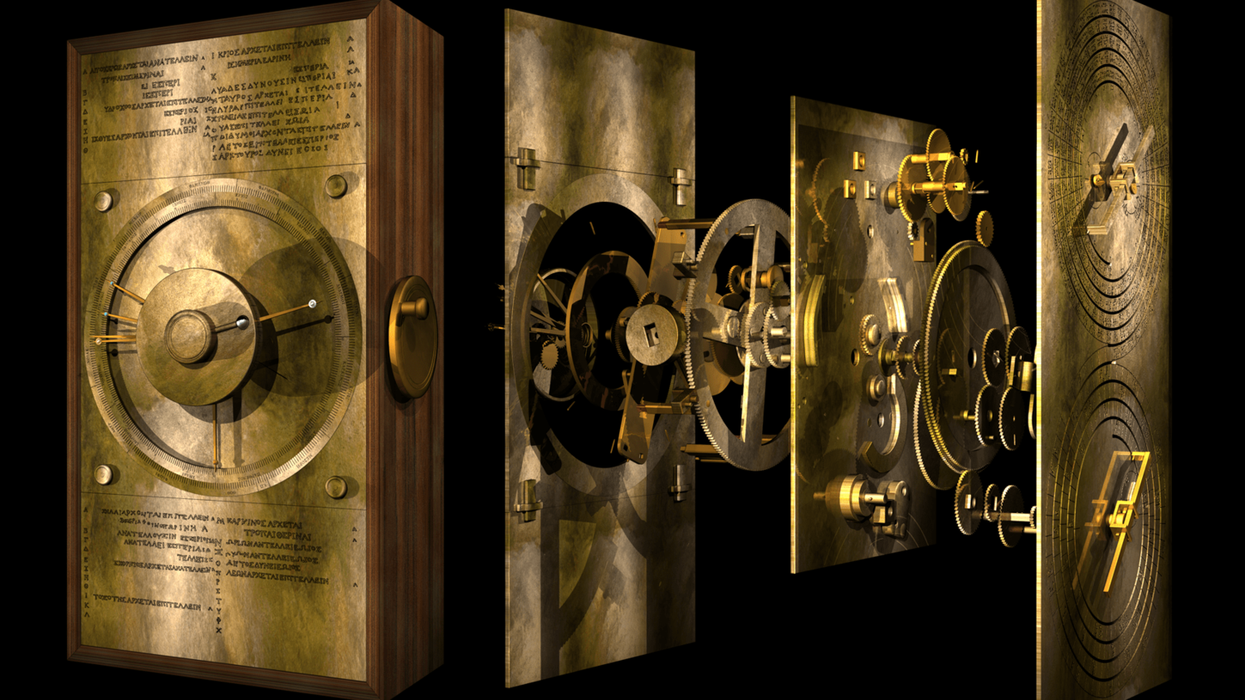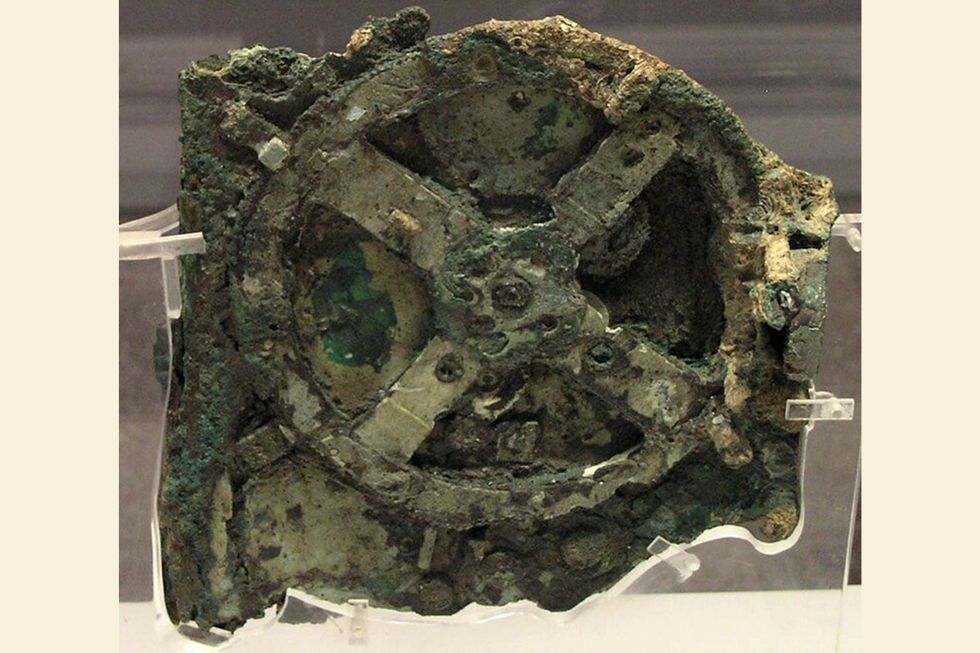Science & Tech
Harriet Brewis
Jul 17, 2024

The Antikythera mechanism has continued to baffle experts for more than 120 years
(Antikythera Mechanism Research Project)
Next time you laugh nostalgically at the clunkiness of your childhood desktop, consider the oldest analog computer in the world which dates back 2,200 years.
The device, which is now known as the Antikythera mechanism, was discovered by sponge divers in the Greek Mediterranean in 1900 when they chanced upon a shipwreck full of treasures.
These treasures included marble sculptures scattered along the seafloor and other ancient artefacts, prompting the first major underwater archaeological dig in history.
However, one object pulled from the site – a lump the size of a large dictionary (around 30cm – or one foot – long) – was initially overlooked. That is, until it broke apart, revealing gear wheels the size of coins.
Historical understanding at the time stated that gears like these shouldn’t have appeared in ancient Greece, or anywhere else in the world, until centuries after the shipwreck it was found in, as mathematician Tony Freeth, of University College London, noted in a piece for the Scientific American.
Since then, the mysterious object has continued to divide experts thanks to its extraordinary complexity.
Over the decades, it has split into 82 fragments, showing that it was once some sort of complicated calculation machine – otherwise known as a computer.

Experts now have an understanding of at least some of its workings – establishing that it is a sophisticated, hand-powered model of the solar system – but there remain many unanswered questions about the strange gadget.
For example, researchers know that it is at least as old as the shipwreck in which it was found – which has been dated to between 60 and 70 BC – but other evidence suggests it may have been made in around 200 BC.
One thing is for sure, it is “the most technologically complex object ever found from the ancient world,” as Freeth – who has studied the Antikythera mechanism for more than 20 years – stressed in his 2021 article.
And theories continue to be put forward about the device to this day, and they're still splitting the scientific community.
At any rate, what we do know is that the bronze device contains dozens of small gears with one millimetre-long teeth that were used to predict the positions of the sun, moon and planets at any given time.
But perhaps its most valuable function is that it has challenged many of our preconceptions about the technological capabilities of the ancient Greeks.
Sign up for our free Indy100 weekly newsletter
How to join the indy100's free WhatsApp channel
Have your say in our news democracy. Click the upvote icon at the top of the page to help raise this article through the indy100 rankings
Top 100
The Conversation (0)












